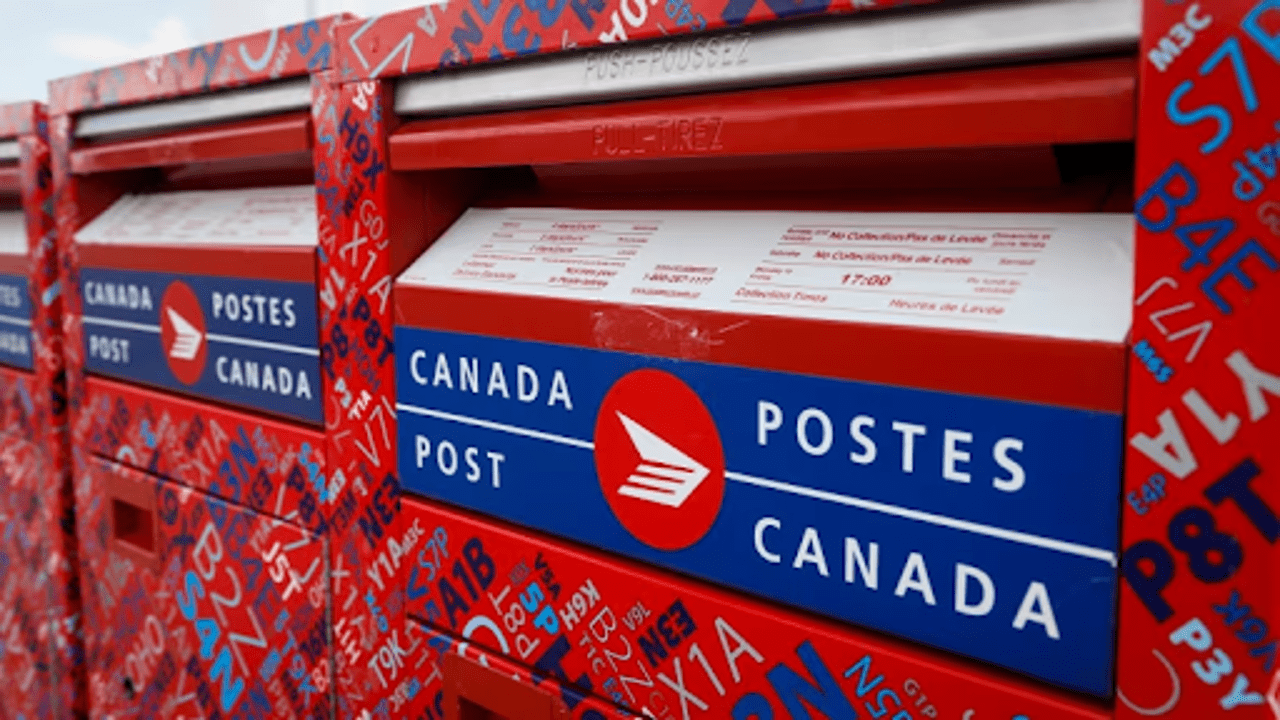
Mailboxes are shown at Canada Post's main plant in Calgary, Alta., on Saturday, May 9, 2020. The union representing Canada Post workers said it will be in a legal strike position on Friday, exactly one year after talks on a new contract began. But the union is holding back on deciding whether a job action will take place immediately. (Jeff McIntosh/The Canadian Press)
The Canadian Union of Postal Workers (CUPW) announced that it will be in a legal strike position starting Friday, as Canada Post warns that a potential strike could worsen its already challenging financial situation.
In a statement released Tuesday, the CUPW confirmed it had provided the required 72-hour notice for both its urban and rural mail carriers. The union highlighted that, despite negotiations that began almost a year ago, there are still significant differences between the two sides, particularly regarding wages, pensions, and medical leave.
CUPW had been in a legal strike position since November 3, following a cooling-off period mandated by law. A recent vote showed strong support for a strike, with more than 95% of workers backing the move. However, the union has not decided if the strike will happen immediately, noting that it will depend on how talks progress in the coming days.
Canada Post, for its part, issued a lockout notice to the union, stating that without new agreements in place, the current collective agreements will end on Friday. The company emphasized that it intends to continue operations but may adjust its services based on its needs and realities, as allowed under the Canada Labour Code.
Labour Minister Steven MacKinnon expressed hope for a resolution, offering mediation support to help both sides reach an agreement. He acknowledged that the issues being discussed are significant but stressed that the government would do everything it could to keep the dialogue going.
Canada Post has repeatedly warned that it is facing a critical financial situation, citing losses of $3 billion since 2018. The company lost $490 million in the first half of 2024, and its financial troubles are compounded by a drop in mail and parcel volumes. Canada Post also faces increasing competition from private courier companies, which have capitalized on lower-cost labor and expanded evening and weekend delivery services.
The Crown corporation recently proposed wage increases of 11.5% over four years and aims to introduce a more flexible delivery model, including parcel deliveries every day of the week. However, some retailers have already begun switching service providers in anticipation of a strike, and businesses are bracing for disruptions during the crucial holiday period.
CUPW is seeking a 23% wage increase over four years, arguing that inflation is affecting all sectors of society, including postal workers. The union has also called for Canada Post to expand its services, including postal banking and senior check-ins, as a way to boost revenue and help the company recover financially.
Jon Hamilton, a spokesperson for Canada Post, defended the company's push for a flexible delivery model, emphasizing that it is critical to securing the future of the postal service, particularly in the growing parcel delivery market. However, he acknowledged the disagreement between the two sides on several key issues, including the proposed expansion of weekend parcel delivery.
The union has also expressed dissatisfaction with Canada Post's refusal to improve its short-term disability plan, demanding 10 medical days and seven personal days for workers. As talks remain deadlocked, businesses that rely on Canada Post for shipping are preparing for potential disruptions. One Toronto shop owner, Don McCowan, estimated that a strike could cost his business up to $60,000 a month in lost sales, with Canada Post handling 45% of his shipments.
McCowan noted that while he would explore alternative shipping options, the higher costs of private couriers would eat into his profits. As the deadline for a possible strike looms, both sides are under increasing pressure to reach an agreement before the situation worsens.















